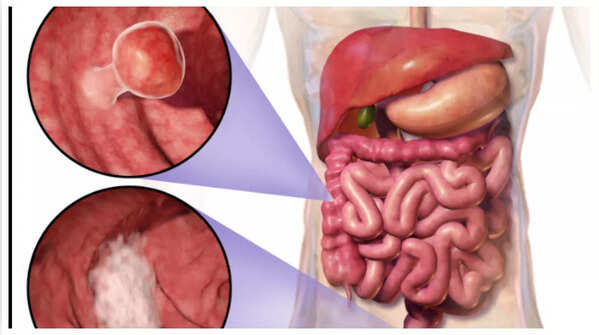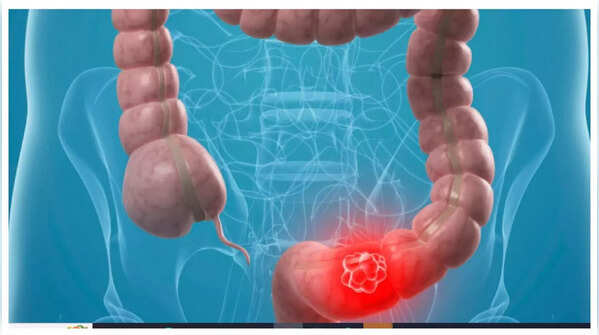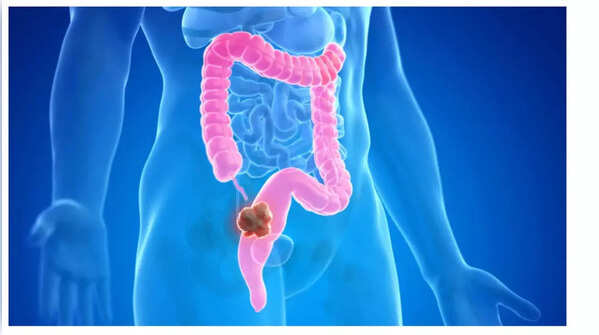Colon cancer, also known as colorectal cancer, develops in the colon or rectum. It often begins as noncancerous polyps that can become cancerous over time. While most cases occur randomly, factors like family history, obesity, and lifestyle can elevate the risk. Early symptoms are frequently subtle and mistaken for common digestive issues. Recognizing these early warning signs is crucial for timely diagnosis and treatment.

A significant early indicator of colon cancer is a change in bowel habits, including:
These changes may seem insignificant and are often attributed to diet, stress, or infections. However, persistent bowel changes lasting more than a few days warrant medical attention. These changes can indicate a growing tumor disrupting normal bowel movements.

The presence of blood in the stool is a symptom that should never be ignored. This can manifest as:
In some cases, the bleeding might be microscopic, leading to anemia over time. While blood in the stool can result from conditions like hemorrhoids or infections, it's essential to rule out colon cancer, especially if it's recurrent or accompanied by other symptoms.

Abdominal discomfort is another early symptom often overlooked. This can include:
Such discomfort is often mistaken for indigestion or minor digestive issues. However, persistent pain unrelated to diet or lifestyle changes may suggest a tumor causing irritation or blockage in the colon.

Feeling unusually tired or weak without a clear explanation can be a subtle sign of colon cancer, particularly when accompanied by other symptoms. This occurs because slow, unnoticed bleeding in the colon can lead to iron deficiency anemia. The reduced number of red blood cells impairs oxygen transport, resulting in fatigue, shortness of breath, and weakness. While these symptoms can be attributed to stress or lack of sleep, they should still be evaluated by a healthcare professional.

Losing weight without trying is a common symptom in most cancers, including colon cancer. When the body is battling cancer, the immune system is constantly activated, and tumors can interfere with digestion and appetite. Significant weight loss without changes in diet or exercise necessitates a visit to the doctor. While this symptom often appears later, it can sometimes be an early warning sign.

Disclaimer: This information is for informational purposes only and does not substitute for professional medical advice. Always consult with a qualified healthcare provider for any health concerns or before making any decisions related to your health or treatment.
Sources:
Newer articles
Older articles
 Stokes Credits Opening Duo for England's Stunning Chase Against India
Stokes Credits Opening Duo for England's Stunning Chase Against India
 India's Dengue Vaccine Inches Closer to Reality as Phase 3 Trials Approach Finish Line
India's Dengue Vaccine Inches Closer to Reality as Phase 3 Trials Approach Finish Line
 Rishabh Pant's Explosive Batting Revolutionizing Cricket, Says Greg Chappell
Rishabh Pant's Explosive Batting Revolutionizing Cricket, Says Greg Chappell
 Blackcaps Gear Up for Blockbuster Home Summer Against Cricket Heavyweights
Blackcaps Gear Up for Blockbuster Home Summer Against Cricket Heavyweights
 India's Test Defeat: Former Selector Blames Fielding Errors, Urges Patience with Transitioning Team
India's Test Defeat: Former Selector Blames Fielding Errors, Urges Patience with Transitioning Team
 Steve Smith Eyes Grenada Test Return After Injury Layoff
Steve Smith Eyes Grenada Test Return After Injury Layoff
 Sri Lanka's Fielding Masterclass Propels ODI Victory Over Bangladesh, Hasaranga Lauds Team Effort
Sri Lanka's Fielding Masterclass Propels ODI Victory Over Bangladesh, Hasaranga Lauds Team Effort
 7 Telltale Signs Your Partner May Be Commitment-Phobe
7 Telltale Signs Your Partner May Be Commitment-Phobe
 Woakes Voices Frustration as Close DRS Calls Haunt England Against India at Edgbaston
Woakes Voices Frustration as Close DRS Calls Haunt England Against India at Edgbaston
 Ancient Remedies: 5 Herbal Teas for Menstrual Cramp Relief
Ancient Remedies: 5 Herbal Teas for Menstrual Cramp Relief